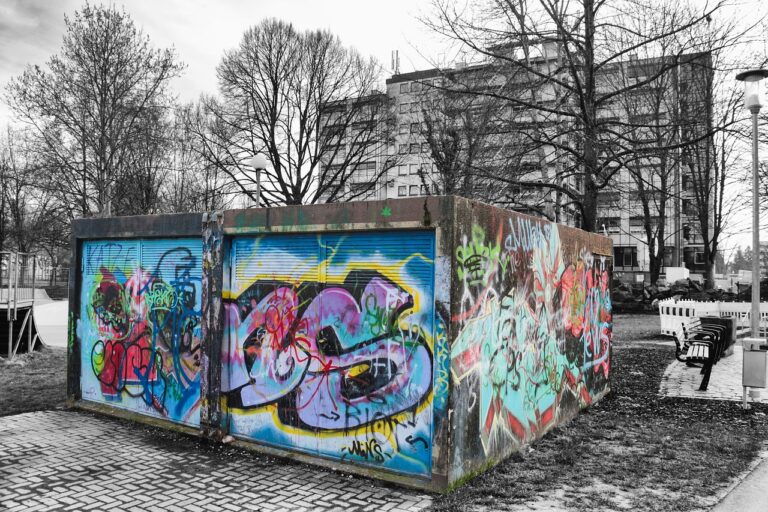The Psychology of Parking: Understanding Behavior in Parking Lots
Parking choices are often influenced by psychological factors that may not be immediately apparent. Research suggests that individual personality traits play a significant role in how people approach parking decisions. For example, individuals who are more risk-averse may prioritize finding a spot closer to their destination to reduce the chances of a long walk, while those who are more impulsive may be more inclined to take the first available spot they see.
Furthermore, emotions such as stress and frustration can also greatly impact parking choices. When individuals are feeling anxious or irritable, they may be more likely to engage in risky parking behaviors, such as double-parking or parking in restricted areas, in an attempt to quickly alleviate their negative emotional state. Understanding these psychological factors can help urban planners and parking management officials develop strategies to promote safer and more efficient parking practices.
Impact of Convenience on Parking Behavior
Parking behavior is significantly influenced by the level of convenience associated with a parking spot. When individuals are presented with convenient parking options, they tend to exhibit more patient and relaxed behaviors while searching for a parking space. The availability of easily accessible and visible parking spaces can lead to a smoother and less stressful parking experience for individuals. On the contrary, when faced with inconvenient parking options, such as distant or difficult-to-reach spots, individuals may feel more frustrated and impatient, leading to hasty decision-making and potential parking violations.
Convenience plays a crucial role in influencing not only the choice of where to park but also the overall satisfaction and stress levels of individuals during the parking process. Research has shown that the convenience of parking facilities directly impacts the perceived ease of parking, which, in turn, influences the overall parking experience. When individuals feel that parking is easily accessible and hassle-free, they are more likely to have a positive parking experience and display considerate parking behavior. Conversely, when faced with inconvenient parking situations, individuals may experience heightened stress and frustration, leading to impulsive parking decisions and increased likelihood of parking-related conflicts.
• Convenient parking options lead to more patient and relaxed behaviors
• Easily accessible and visible parking spaces result in a smoother experience
• Inconvenient parking options can cause frustration and impatience
• Distant or difficult-to-reach spots may lead to hasty decision-making
• Convenience influences choice of where to park and overall satisfaction during the process
Effect of Stress and Frustration on Parking Decisions
Stress and frustration play a significant role in shaping individuals’ parking decisions. When faced with high levels of stress, individuals may opt for the nearest parking spot rather than searching for a more convenient or cost-effective option. This impulsive decision-making can result in increased parking fees or additional time spent circling the parking lot, contributing to overall dissatisfaction.
Moreover, elevated levels of frustration can lead individuals to exhibit riskier parking behaviors, such as parking in restricted areas or ignoring parking regulations. This reckless behavior is often a coping mechanism for individuals seeking to alleviate their feelings of frustration and regain a sense of control in a stressful situation. However, these actions can have negative consequences, including fines or vehicle towing, ultimately adding to the individual’s stress and frustration levels.
How do psychological factors influence parking choices?
Psychological factors such as past experiences, emotions, and cognitive biases can play a significant role in influencing parking choices. People may prefer certain parking options based on their comfort level, convenience, or perceived safety.
What impact does convenience have on parking behavior?
Convenience plays a major role in parking behavior. People are more likely to choose parking options that are easily accessible, close to their destination, and offer convenience in terms of proximity and ease of use.
How does stress and frustration affect parking decisions?
Stress and frustration can lead to impulsive decision-making when it comes to parking. People under stress may be more inclined to choose the first available parking spot, even if it is not the most convenient or cost-effective option. Frustration can also lead to reckless driving behavior in search of parking, increasing the risk of accidents.
Are there any strategies to mitigate the impact of stress and frustration on parking decisions?
To mitigate the impact of stress and frustration on parking decisions, it is important to plan ahead and allow extra time for parking. By being prepared and having a backup plan, individuals can reduce the likelihood of making impulsive decisions under stress. Additionally, practicing mindfulness techniques and deep breathing exercises can help manage stress levels and promote better decision-making in parking situations.






